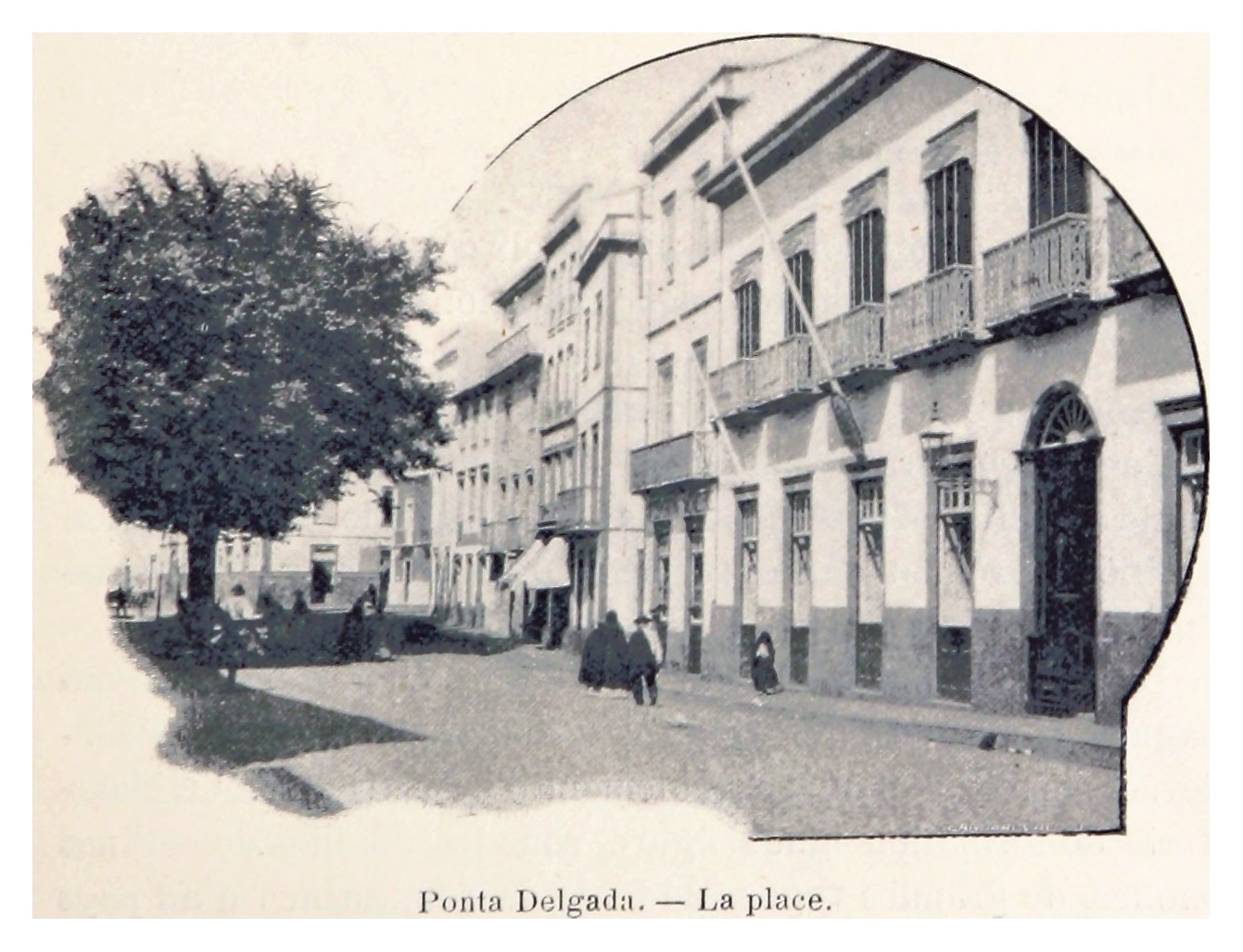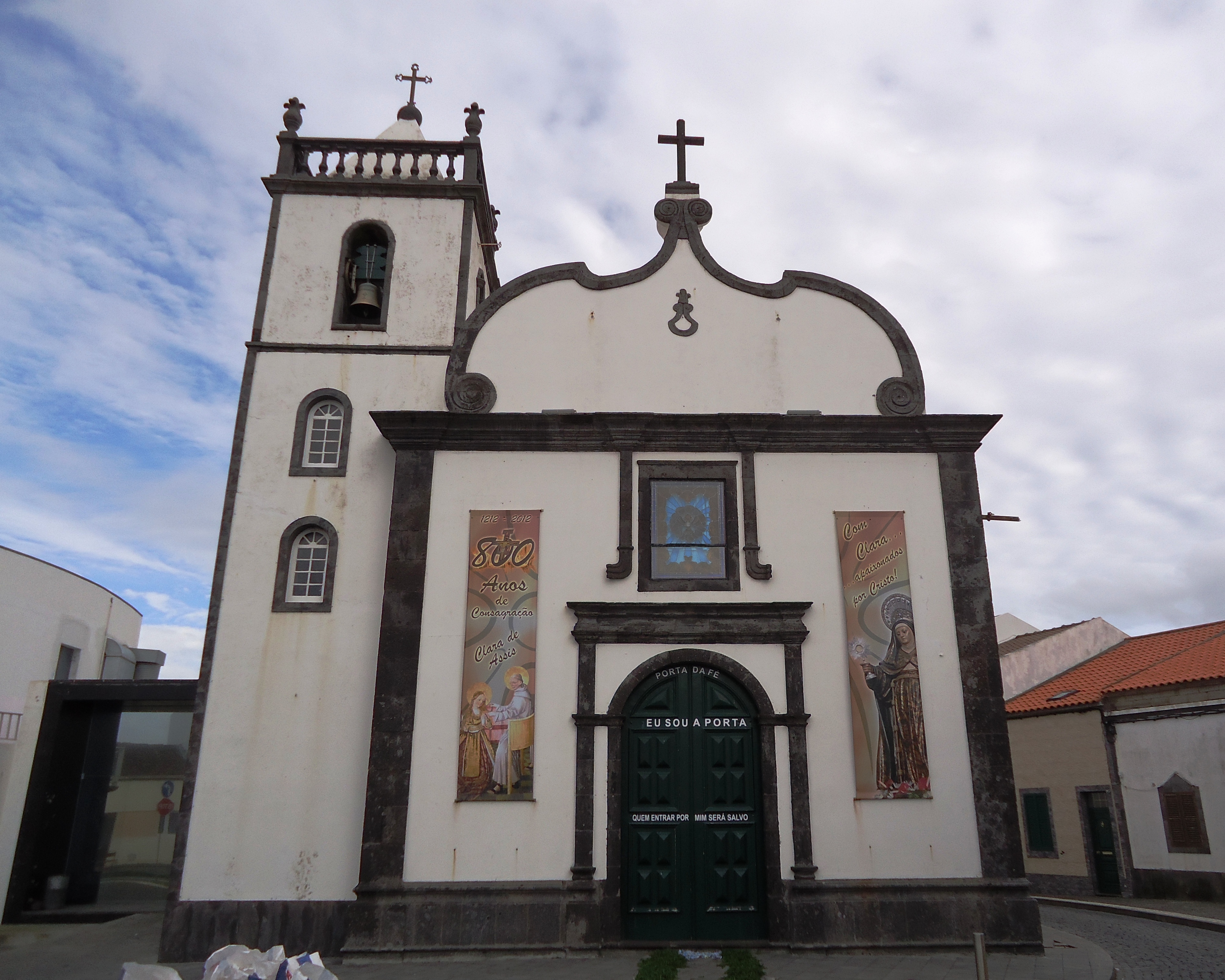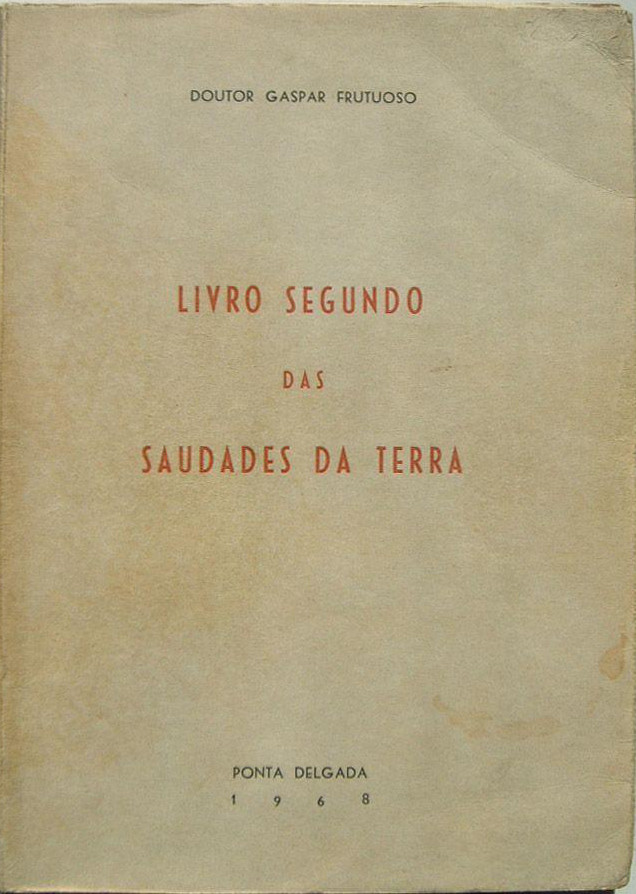|
Ponta Delgada (other)
Ponta Delgada (; ) is the largest municipality (''concelho'') and economic capital of the Autonomous Region of the Azores in Portugal. It is located on São Miguel Island, the largest and most populous in the archipelago. As of 2021, it has 67,287 inhabitants, in an area of . There are 17,629 residents in the three central civil parishes that comprise the historical city: São Pedro, São Sebastião, and São José. Ponta Delgada became the region's administrative capital under the revised constitution of 1976; the judiciary and Catholic See remained in the historical capital of Angra do Heroísmo while the Legislative Assembly of the Azores was established in Horta. History The origin of the placename Ponta Delgada (Portuguese for ''delicate or thin point'') was elaborated by the famous Portuguese chronicler, Father Gaspar Frutuoso, who wrote: In around 1450, Pêro de Teive established a small fishing village that eventually grew into the urban agglomeration in Santa Cl ... [...More Info...] [...Related Items...] OR: [Wikipedia] [Google] [Baidu] |
Horta (Azores)
Horta () is a municipality and city in the Portuguese archipelago of the Azores encompassing the island of Faial. The population in 2011 was 15,038 in an area of The city of Horta itself has a population of about 7,000. Horta's marina is a primary stop for yachts crossing the Atlantic Ocean, and its walls and walkways are covered with paintings created by visitors noting the names of their vessels, crews, and the years they visited. Peter's Cafe Sport is a bar located across from the marina that houses the island's scrimshaw museum, a collection of artifacts carved from whale tooth and jawbone. Peter's is a point of reference for transatlantic yachters and sailors. History 15th through 17th centuries In 1467 the Flemish nobleman Josse van Huerter returned to Faial on a second expedition, this time disembarking along the shore of what would be known as Horta Bay. He built a small chapel which would later form the nucleus of a small community known as Horta, a name possibly deri ... [...More Info...] [...Related Items...] OR: [Wikipedia] [Google] [Baidu] |
Battle Of Ponta Delgada
The naval Battle of Vila Franca do Campo, also known as Battle of Ponta Delgada and Naval Battle of Isla Terceira, took place on 26 July 1582, off the coast of the island of São Miguel in the Portuguese archipelago of the Azores, during the War of the Portuguese Succession. A combined corsair expedition, mainly French (an Anglo-French fleet with Portuguese forces included), sailed against a Spanish naval force made up of Portuguese and Castilian ships, to preserve control of the Azores under pretender António, Prior of Crato and to defend the islands from incorporation into the Iberian Union—the largest French force sent overseas before the age of Louis XIV. In the first engagement between large fleets of carracks and galleons operating at great distances from the mainland, the mercenary fleet under Filippo di Piero Strozzi was severely defeated by a squadron under Álvaro de Bazán. The Spanish victory resulted in the rapid Spanish conquest of the Azores, completing th ... [...More Info...] [...Related Items...] OR: [Wikipedia] [Google] [Baidu] |
John III Of Portugal
John III ( pt, João III ; 7 June 1502 – 11 June 1557), nicknamed The Pious (Portuguese: ''o Piedoso''), was the King of Portugal and the Algarves from 1521 until his death in 1557. He was the son of King Manuel I and Maria of Aragon, the third daughter of King Ferdinand II of Aragon and Queen Isabella I of Castile. John succeeded his father in 1521 at the age of nineteen. During his rule Portuguese possessions were extended in Asia and in the New World through the Portuguese colonization of Brazil. John III's policy of reinforcing Portugal's bases in India (such as Goa) secured Portugal's monopoly over the spice trade of cloves and nutmeg from the Maluku Islands. On the eve of his death in 1557, the Portuguese empire had a global dimension and spanned almost . During his reign, the Portuguese became the first Europeans to make contact with Japan (during the Muromachi period). He abandoned the Muslim territories in North Africa in favor of the trade with India and investme ... [...More Info...] [...Related Items...] OR: [Wikipedia] [Google] [Baidu] |
Foral
200px, Foral of Castro Verde - Portugal The word ''foral'' ({{IPA-pt, fuˈɾaɫ, eu, plural: ''forais'') is a noun derived from the Portuguese word ''foro'', ultimately from Latin ''forum'', equivalent to Spanish ''fuero'', Galician ''foro'', Catalan ''fur'' and Basque '' foru''. The ''Carta de Foral'', or simply ''Foral'', was a royal document in Portugal and its former empire, whose purpose was to establish a ''concelho'' (Council) and regulate its administration, borders and privileges. A newly founded town would also need the king's approval through a ''Foral'', in order to be considered one. In this case, the town's administration and privileges would be defined in that document. ''Forais'' were granted between the 12th and the 16th centuries. The ''Foral'' was the basis for municipal foundation, thus the most important event of a city or town's history. It was critical to a successful land settling and an increase in crop yields, by giving more freedom and dignity, via a ... [...More Info...] [...Related Items...] OR: [Wikipedia] [Google] [Baidu] |
Abrantes
Abrantes () is a concelho, municipality in the Centro Region, Portugal, central Médio Tejo Subregion, Médio Tejo subregion of Portugal. The population was 39,325, in an area of . The municipality includes several parishes divided by the Tagus River, which runs through the middle of the municipality. The urbanized part, the parish of Abrantes (São Vicente e São João) e Alferrarede, located on the north bank of the Tagus, has about 17,000 residents. History The Celts are believed to have established the first settlement in Abrantes around 300 BC. The name is derived from Latin ''Aurantes'', perhaps referring to deposits of alluvial gold (Latin: '':wiktionary:aurum, aurum'') along the Tagus. Similarly, Roman art, Roman mosaics, coins, the remains of ancient aqueducts, as well as other antiquities, have been discovered in the vicinity of Abrantes. The village of Abrantes and the Abrantes Castle were conquered from the Al-Andalus, Moors by Afonso I of Portugal in 1148. After 1 ... [...More Info...] [...Related Items...] OR: [Wikipedia] [Google] [Baidu] |
Manuel I Of Portugal
Manuel I (; 31 May 146913 December 1521), known as the Fortunate ( pt, O Venturoso), was King of Portugal from 1495 to 1521. A member of the House of Aviz, Manuel was Duke of Beja and Viseu prior to succeeding his cousin, John II of Portugal, as monarch. Manuel ruled over a period of intensive expansion of the Portuguese Empire owing to the numerous Portuguese discoveries made during his reign. His sponsorship of Vasco da Gama led to the Portuguese discovery of the sea route to India in 1498, resulting in the creation of the Portuguese India Armadas, which guaranteed Portugal's monopoly on the spice trade. Manuel began the Portuguese colonization of the Americas and Portuguese India, and oversaw the establishment of a vast trade empire across Africa and Asia. He was also the first monarch to bear the title: ''By the Grace of God, King of Portugal and the Algarves, this side and beyond the Sea in Africa, Lord of Guinea and the Conquest, Navigation and Commerce in Ethiopia, A ... [...More Info...] [...Related Items...] OR: [Wikipedia] [Google] [Baidu] |
Vila Franca Do Campo
Vila Franca do Campo () is a town and municipality in the southern part of the island of São Miguel in the Portuguese Autonomous Region of the Azores. The population of the municipality was 11,229 in 2011, in an area of 77.97 km². The town proper, which incorporates the urbanized parishes São Miguel and São Pedro, has 4100 inhabitants. History Vila Franca do Campo displays its municipal motto, ''Quis sicut deus?'', on its flag and on its coat-of-arms. This Latin phrase means "Who is like God?" It is a reference to St. Michael the Archangel for whom the island of São Miguel is named; in Hebrew, the name, Michael, means "he who is like God". Founded in the middle of the 15th century by Gonçalo Vaz Botelho, the settlement was elevated to the status of ''vila'' (''town'') in 1472; Vila Franca do Campo quickly grew into the largest settlement and administrative seat of the island of São Miguel. The greatest tragedy to befall the Azores occurred on 20 October 1522, w ... [...More Info...] [...Related Items...] OR: [Wikipedia] [Google] [Baidu] |
Santa Clara (Ponta Delgada)
Santa Clara () is a civil parish in the municipality of Ponta Delgada ( São Miguel) in the Portuguese archipelago of the Azores. The population in 2011 was 2,971, in an area of 2.24 km². History When Vila Franca do Campo was the principal centre of São Miguel, the area known as ''Ponta Delgada'' was the beginning of a vast hunting area populated by numerous "wild" mountain pigs. At the edge of this region, was the homestead of Francisco Ramalho, and was considered a starting point for huntsmen from Vila Franca. This embryonic site became the foundation of the village of Santa Clara; it was an important reference in the southwest part of the island, a determinant factor in the location and orography of the locality, combined with a cove and stone beach that later became known as "Ponta Delgada". The long, narrow basalt promontory, helped to protect the area from the undulation of Atlantic swells known as the ''Cunhal da Maré''. The promontory helped to create a protect ... [...More Info...] [...Related Items...] OR: [Wikipedia] [Google] [Baidu] |
Clare Of Assisi
Clare of Assisi (born Chiara Offreduccio and sometimes spelled Clara, Clair, Claire, Sinclair; 16 July 1194 – 11 August 1253) was an Italian saint and one of the first followers of Francis of Assisi. She founded the Order of Poor Ladies, a monastic religious order for women in the Franciscan tradition, and wrote their Rule of Life, the first set of monastic guidelines known to have been written by a woman. Following her death, the order she founded was renamed in her honour as the Order of Saint Clare, commonly referred to today as the Poor Clares. Her feast day is on 11 August. Life Clare was born in Assisi during the High Middle Ages, the eldest daughter of Favarone or Favorino Sciffi, Count of Sasso-Rosso and his wife Ortolana. Traditional accounts say that Clare's father was a wealthy representative of an ancient Roman family, who owned a large palace in Assisi and a castle on the slope of Mount Subasio.Robinson, Paschal (1908). "St. Clare of Assisi." ''The ... [...More Info...] [...Related Items...] OR: [Wikipedia] [Google] [Baidu] |
Gaspar Frutuoso
Gaspar Frutuoso (c.1522 in Ponta Delgada – 1591 in Ribeira Grande) was a Portuguese priest, historian and humanist from the island of São Miguel, in the Portuguese archipelago of the Azores. His major contribution to Portuguese history was his detailed descriptions of the history and geography of the Azores, Madeira, Canary Islands and references to Cape Verde, which he published in his six-part tome ''Saudades da Terra'', as well as ''Saudades do Céu''. He is normally cited in settlement history of the islands of the Azores. Biography Gaspar Frutuoso was born in 1522,José Luís Brandão da Luz (1996), p. 475 on the island of São Miguel, son of Frutuoso Dias, a merchant and rural property-owner, and his wife Isabel Fernandes. Little is known of his childhood, apart from references to him working his father's lands during this period. The first trustworthy record about Frutuoso was his admission to the University of Salamanca (in 1548) where he later obtained an Arts certi ... [...More Info...] [...Related Items...] OR: [Wikipedia] [Google] [Baidu] |
1st Aeronautical Company At Ponta Delgada, Azores On January 21, 1918
First or 1st is the ordinal form of the number one (#1). First or 1st may also refer to: *World record, specifically the first instance of a particular achievement Arts and media Music * 1$T, American rapper, singer-songwriter, DJ, and record producer Albums * ''1st'' (album), a 1983 album by Streets * ''1st'' (Rasmus EP), a 1995 EP by The Rasmus, frequently identified as a single * '' 1ST'', a 2021 album by SixTones * ''First'' (Baroness EP), an EP by Baroness * ''First'' (Ferlyn G EP), an EP by Ferlyn G * ''First'' (David Gates album), an album by David Gates * ''First'' (O'Bryan album), an album by O'Bryan * ''First'' (Raymond Lam album), an album by Raymond Lam * ''First'', an album by Denise Ho Songs * "First" (Cold War Kids song), a song by Cold War Kids * "First" (Lindsay Lohan song), a song by Lindsay Lohan * "First", a song by Everglow from ''Last Melody'' * "First", a song by Lauren Daigle * "First", a song by Niki & Gabi * "First", a song by Jonas Brot ... [...More Info...] [...Related Items...] OR: [Wikipedia] [Google] [Baidu] |



.png)
.jpg)


